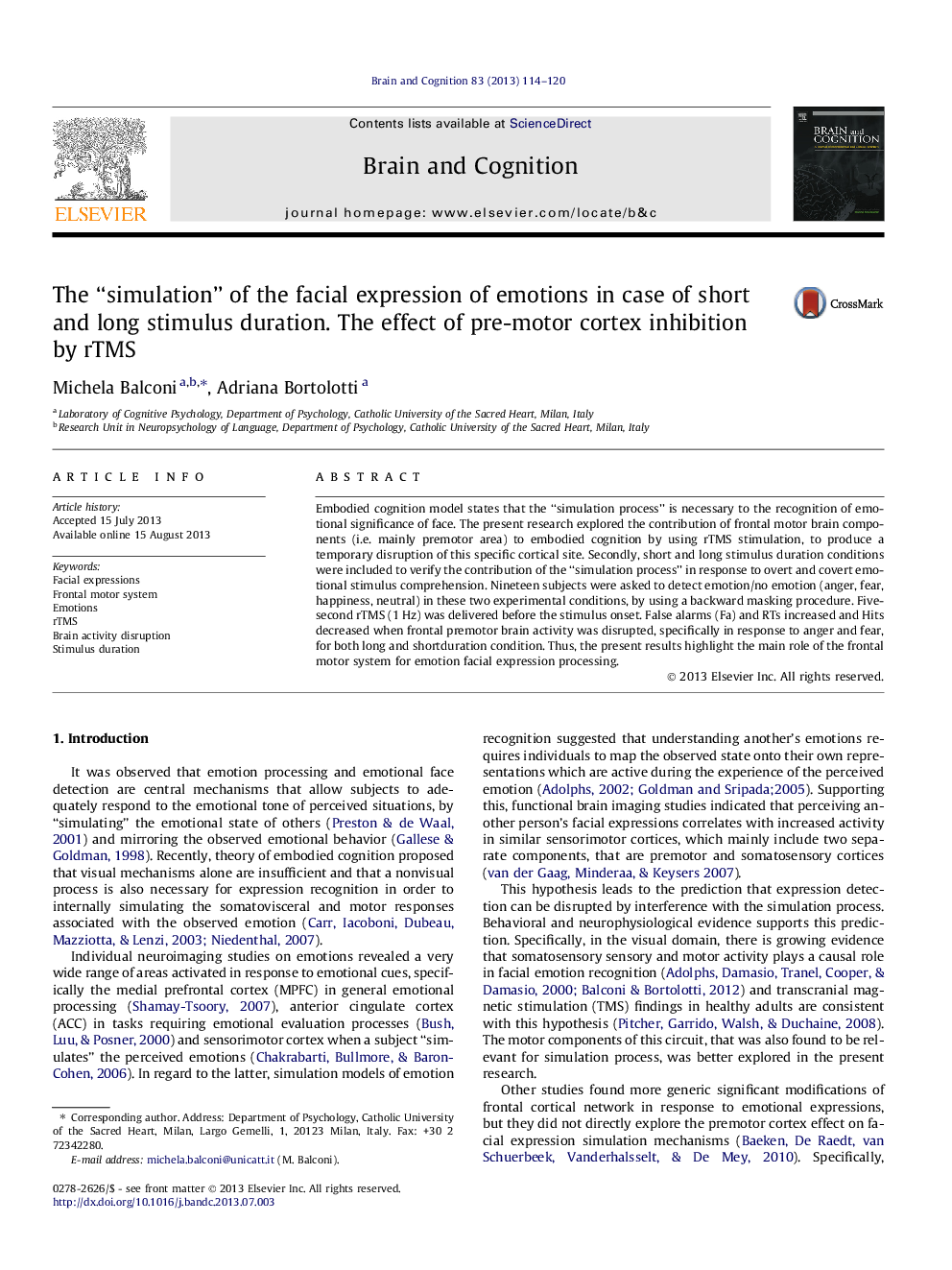| Article ID | Journal | Published Year | Pages | File Type |
|---|---|---|---|---|
| 924000 | Brain and Cognition | 2013 | 7 Pages |
•Frontal motor system affected conscious and unconscious emotional processing.•Five-second rTMS was used to the disruption of the frontal motor system.•ER and RTs increased in response to anger and fear in case of frontal inhibition.•The frontal system is important for conscious/unconscious emotion processing.•Embodied cognition explained the frontal system effect on “simulation” of emotions.
Embodied cognition model states that the “simulation process” is necessary to the recognition of emotional significance of face. The present research explored the contribution of frontal motor brain components (i.e. mainly premotor area) to embodied cognition by using rTMS stimulation, to produce a temporary disruption of this specific cortical site. Secondly, short and long stimulus duration conditions were included to verify the contribution of the “simulation process” in response to overt and covert emotional stimulus comprehension. Nineteen subjects were asked to detect emotion/no emotion (anger, fear, happiness, neutral) in these two experimental conditions, by using a backward masking procedure. Five-second rTMS (1 Hz) was delivered before the stimulus onset. False alarms (Fa) and RTs increased and Hits decreased when frontal premotor brain activity was disrupted, specifically in response to anger and fear, for both long and shortduration condition. Thus, the present results highlight the main role of the frontal motor system for emotion facial expression processing.
